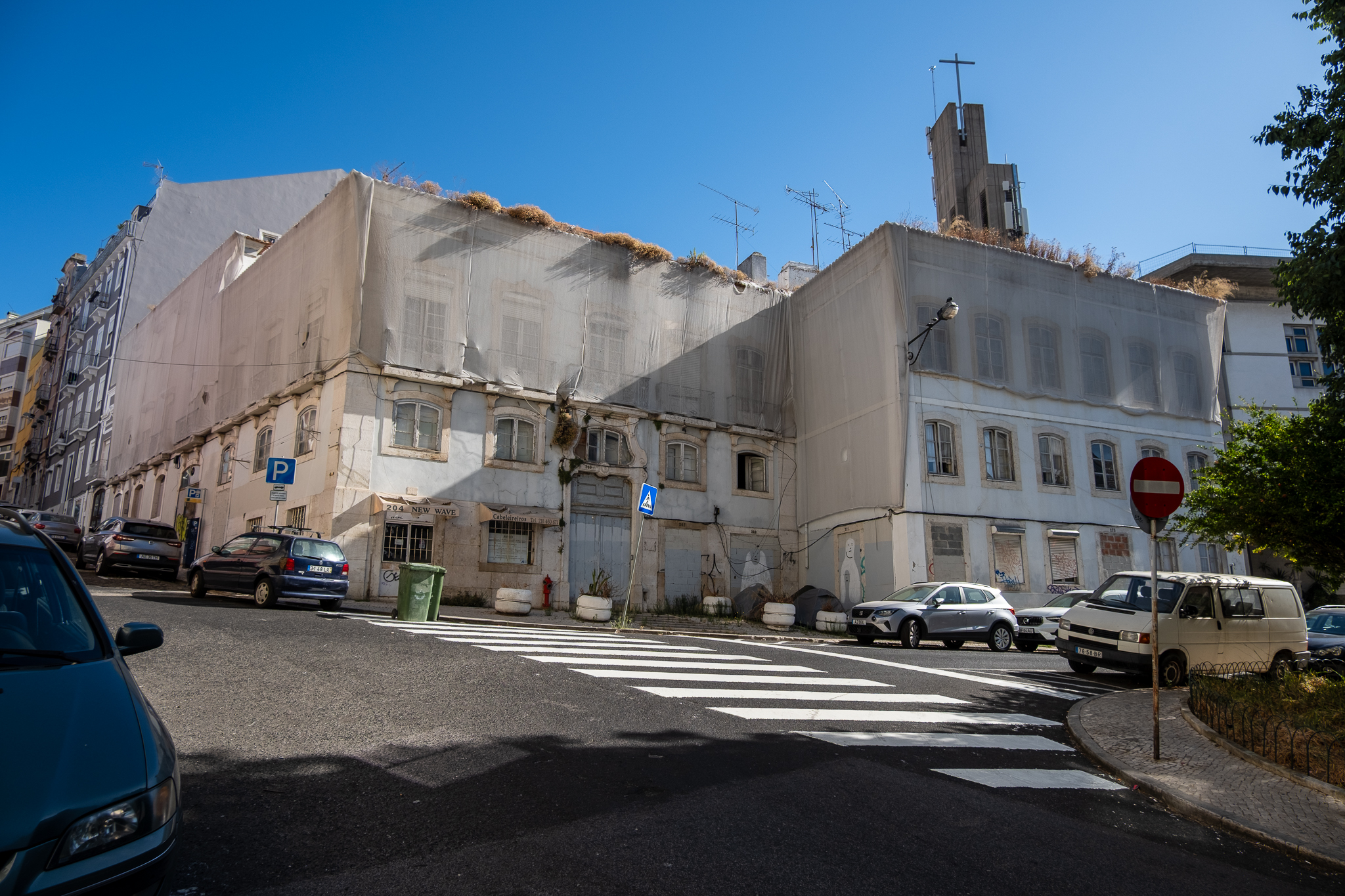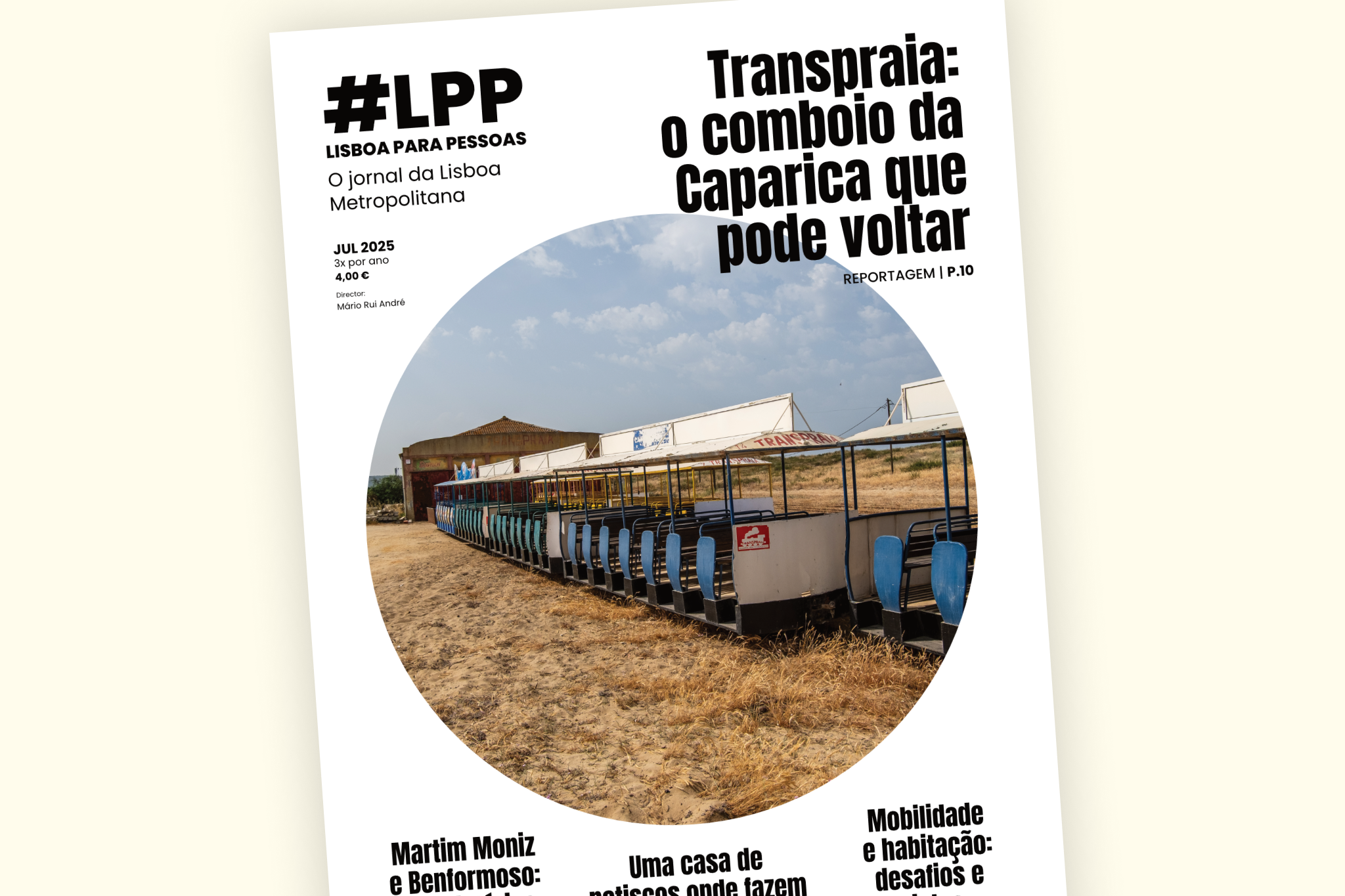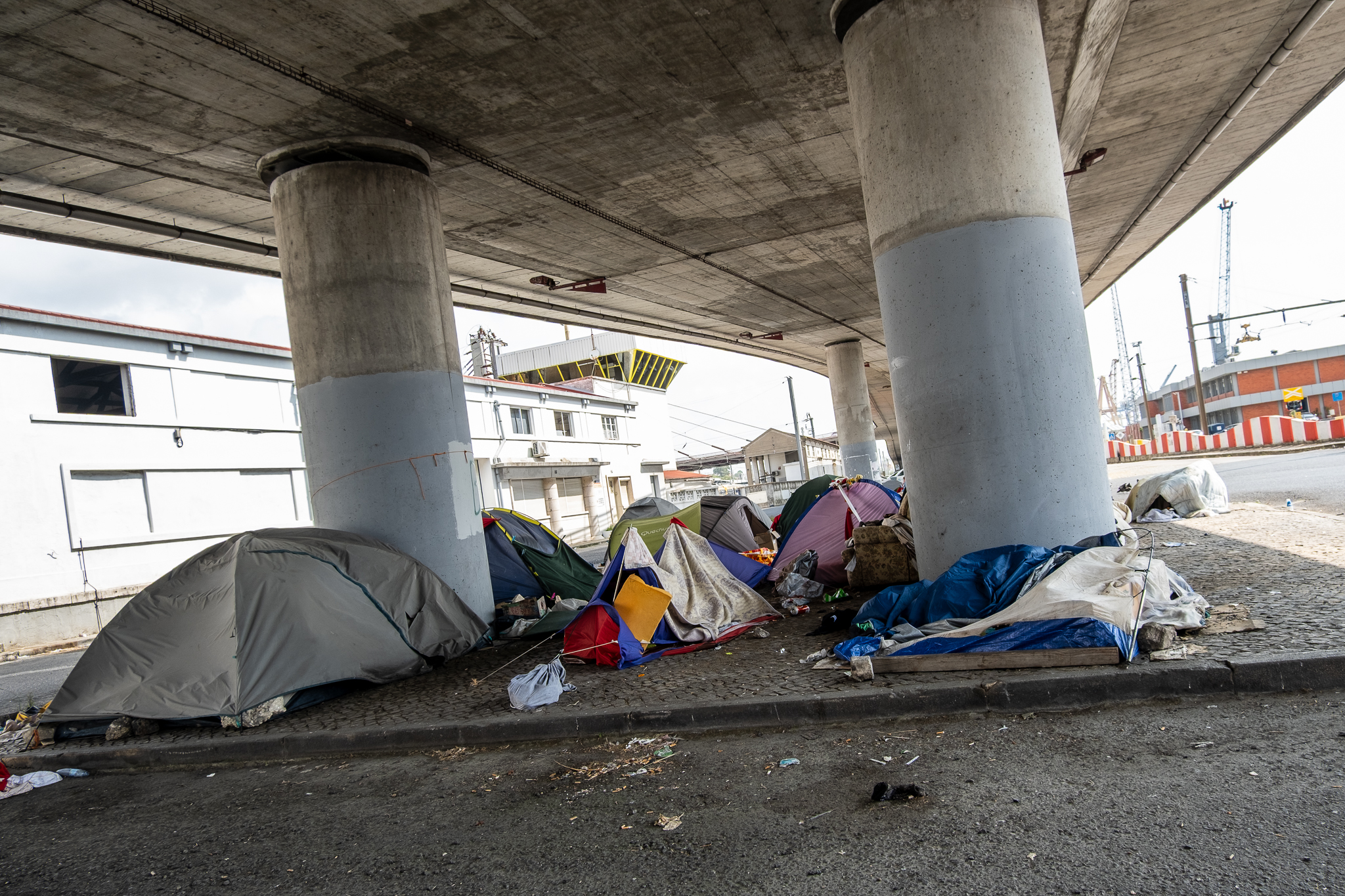Carlos Moedas and the Councilwoman for Housing, Filipa Roseta, presented the Lisbon Municipal Housing Charter - the document that organizes and synthesizes the city's strategy in this field.

In order to to organize and synthesize local housing policiesthe municipalities have an instrument called Municipal Housing Charter - its elaboration is required by Housing Basis Law. Lisbon presented its Charter this Thursday, February 23rd. The document is still only known in general lines and will still have to be debated and voted on, both in a town hall meeting and by the Municipal Assembly.
"Housing is undoubtedly our city's biggest challenge, and so we have to be clear on housing policies"said the Mayor, Carlos Moedas, during the presentation of the Charter to journalists. "A housing policy has to be, first of all, inclusive, it has to be participatory, and it has to involve everyone. A housing policy cannot be something that prohibits or imposes."he explained. For Moedas, housing policy can't be a good thing, either. "generate false expectations" nor be based on "measures that pit the public against the private, or tenants against renters, or that convey to the population that the welfare state can solve everything".
The Lisbon Municipal Housing Charter clarifies the municipality's strategy on this subject, bringing together in a single document the different actions and policies to be followed in a 10-year time horizon (until 2032). Three major priorities have been defined:
- increase and improve housing supply (not only municipal housing, but partnership housing and also private housing);
- reduce asymmetries in access to housing;
- regenerate the forgotten city.
The measures
These priorities are materialized in several measures, which Moedas presented together with the Councillor for Housing, Filipa Roseta. Among the measures, the following stand out:
- continuation of affordable rental programs - the Supported Rental Program (PAA)aimed at low-income families (monthly income <500 euros), and the Affordable Income Program (PRA)for the middle class (monthly income >760€). These two initiatives came from previous mandates, but Moedas and Roseta identified a group that was not being addressed by these programs: people with monthly incomes between 500 and 760€. "Many people wanted to avoid earning more than 500€ so as not to lose their support".Moedas explained. "We were told on the street that they were going to stop working just to have a house. This didn't make sense. It was a group that had no space in housing policies."Roseta added. Thus, for those earning between 500 and 760 €, the municipality created a special PRA with 36 houses delivered in 2022 and 90 more houses planned in two new tenders.

- IMI and IMT exemption on the purchase of the first house up to 250 thousand euros for young people up to 35 years old. "We are talking about a value that can go up to 8 thousand euros“said the Mayor, explaining that the measure allows young people "enter the real estate market" with the purchase of a house that may be smaller and, "in time, they can sell this house and buy a bigger one". Last year, Carlos Moedas saw this measure being rejected by the opposition in the city council, but he is confident that it will be approved this time, since it comes in a broader and diverse context of other measures. "I hope [opposition councilors] don't have the courage to go against a proposal that is essential for our young people"he said.
- continuation of the Municipal Affordable Rent Subsidylaunched in 2022. This is a rent support subsidy for young people and professionals living in Lisbon, in which the City pays one third of that rent. The rent must exceed an effort rate of 30% and the household must not earn more than 35-45 thousand euros annually. This subsidy is "a faster way to get into affordable income"because there is no raffleUnlike the PRA (Affordable Rent Program, mentioned earlier). "We can reach everyone, no draw"clarified the Councilwoman in charge of Housing. "Any house can be affordable if you have an affordable rent."
- building more municipal housingeither with the City Hall building on municipal land, or with the City Hall ceding the land for another entity to build on, making these dwellings available for affordable income programs. In total, Filipa Roseta foresees 9624 new dwellingsThe majority is the result of new construction and a part of urban renewal. This number of 9624 dwellings results from the "estimated potential taking into account the land available to the Chamber that is not yet developed"explained the Councilwoman, pointing out that "producing housing takes time" and that, therefore, "there is an associated schedule" - the Housing Clock. The municipality has 1006 completed homes since the beginning of its mandate (October 2021), 930 homes under construction, 1721 in project and 5967 under study. For this production of municipal and partnership housing, the City Council wants to take advantage of the 340 million euros of European funding available through the Recovery and Resilience Plan (RRP) until 2026.

- The Lisbon City Council also intends to bring back the cooperatives to the city's housing policies. "We will launch five tenders for cooperatives by the end of the year"Filipa Roseta announced. According to the Councilwoman, the idea of these contests for cooperatives is "give municipal land to a group of people so they can build on it. They pay only the value of the construction.". The first of these five tenders has been launched: it is a plot of land in Lumiar, near the Alvalade stadium, where a cooperative of people will be able to build a housing building with 18 apartments. The tender specifications define the characteristics of these dwellings, leaving no margin for the cooperatives to define how they want the building and respective dwellings, participating in the design and architectural process - these circumstances displeases potential stakeholders as is the case of Rizoma, a Lisbon-based cooperative that has been developing cooperative housing projects, inspired by international cases such as d'The Edgein Barcelona. The contests aimed at cooperatives will be integrated in the movement New European Bauhaus - an initiative of the European Commission that aims to place culture and creativity at the center of European Ecological Pactand is based on the values of environmental sustainability, aesthetics and inclusion. In addition to the competition in Lumiar open to cooperatives, the municipality has, within this New European Bauhaus, three other competitions for housing construction projects - one of them is to solve the housing problems in Iron Farm.

- dignify municipal housing. According to a survey done by the local authority, there are 13,150 families in municipal districts in undignified conditions and another 2,000 families in undignified housing conditions in other municipal buildings. In the municipal districts alone - which are managed by the municipal company Gebalis - it is estimated that 160 million euros will be needed to solve the shortages. The local authority has also identified 36 "priority habitats for requalification", in collaboration with the parish councils. Filipa Roseta intends to channel RRP funds to improve the living conditions of these people and also to provide buildings with better energy efficiency. "There can't be areas of the city that are left behind"said the Councilwoman, for whom regenerating the so-called forgotten city is fundamental. "Lisbon has to be magnificent in all its square kilometers."


- Moedas announced that the municipality will proceed to purchase vacant properties in the city, when owners are interested in getting rid of them (either because they have no interest or no money to make works), to rehabilitate these buildings and put them on the affordable rental market. "We don't want to think about the RRP just to build"he said. "This is a quicker solution to buy fractions already made, exercising the right of first refusal, and thus having cheaper housing." The first step - which is already being taken - is to identify vacant properties in the city that can be acquired by the municipality. The Mayor did not advance any figures to quantify this operation;
- In addition to all these measures, Carlos Moedas' executive also intends to continue investing in university residencesWith 320 new beds available this year, another 900 beds are being planned. It also wants, together with the New University of Lisbon, to activate a digital platform where students can find landlords - it may be something similar to the Uniplaces. Filipa Roseta also announced the creation of an office for the development of housing policies on a metropolitan scalebecause this issue doesn't stop at the limits of a municipality. The councilwoman explains that this kind of office "works very well at the neighborhood level"and a policy to be continued - in this regard, the goal is to have Support Offices for Priority Intervention Neighborhoods (GABIP) by parish. For his part, Moedas revealed that it is fundamental promote housing for workforces essential to the functioning of the city of LisbonIt's a way to fix these people within the municipality.
During the presentation, Filipa Roseta presented that the Municipal Housing System which this Charter is intended to develop and which must be based on three pillars:
- o publicThis is a project in which the Municipality of Lisbon builds housing, rehabilitates patrimony, or buys private patrimony (for example, vacant buildings) to put on the public market;
- o jointlywhere there is private construction on municipal land, which is given to these entities for a time horizon of 90 years and with tax incentives (this includes cooperatives and also the concessions of affordable rent, a model in which private companies build housing to make all or part of it available at below market prices);
- o privateOn the local authority side, this includes rent support, tax incentives such as IMI and IMT exemptions, and market regulation instruments.

In this proposed Municipal Housing System,"everybody wins"summarized Filipa Roseta. In this area, Carlos Moedas recalled that "the private ones don't contribute if they are not profitable" to mention why some of the promises of affordable rent have not been kept before. "We had a model where private individuals would contribute [housing construction] without any return" and, therefore, they were not interested. "We need to review the model of [affordable income] concessions"starting with the projects already planned for Benfica and Parque das Nações. "We need the private."
About the project of affordable rent in partnership model (concession) of Restelo, Roseta said that "nothing has been canceled" and that is being given "priority to what is going to be doable by the deadline of the RRP [2026]. The projects are all making their way and we are managing which ones it is possible to do" to take advantage of European funds.
The diagnosis
The municipality's major goal is to overcome the construction levels of the last decade, described as the worst of the 21st century in terms of municipal public housing policy. "There has been a huge drop in the level of housing production in the last decade"Filipa Roseta identified. "Very little was produced and rents went up a lot, not keeping up with incomes"The Councilwoman added, thus summarizing the problem of housing in Lisbon: "Those who are inside [the housing ecosystem] are fine. Those who are not can't get in."
From a diagnosis of the current situation, the City of Lisbon identifies about 320,000 dwellings in the cityof which more than 242,000 are habitually occupied (50% of people are renting and 50% own such dwellings). However, there are close to 78 thousand dwellings in the city without permanent occupation and, of these, about 48,000 are vacant. The municipality had a share of responsibility in these empty houses, since 1756 dwellings were owned by the municipality. "We had two thousand empty municipal housing units and our first priority was to put all our empty assets to the service of families"Roseta pointed out.



"What is here on paper are not promises, it is what we are doing"said Carlos Moedas, mentioning the importance of "having data to make that policy". "Politics becomes ideological when there is no data and when it is done based on emotions." Moedas rejects an ideological component in the Municipal Housing Charter presented, highlighting the "diversification of proposals"This makes him confident about the eventual approval of the IMI and IMT exemption for young people - after all, it is no longer a one-off measure but part of a strategy. "We have proof here today that our policy is diverse. And so I take this measure again. We have to have measures that reduce taxes for people."
Filipa Roseta announced that the will is to develop an annual report on housing policies. "We will present our numbers and always do better the following year"he said, revealing ambition and will to reverse the paradigm. The data presented about the last century and, in particular, the last decade, show that, despite a substantial slowdown in housing production, support and delivery of new affordable rent keys have increased.


Still for Carlos Moedas, housing policies "should not be unilateral" and we should always be suspicious when a single answer is proposed for the entire population universe. "Policies should be segmented for different groups." The Municipal Housing Charter will be presented, in detail, on March 6th to the Municipal Housing Council. It will then be debated publicly and will still have to be discussed and approved, either by the city council or by the Lisbon City Council.






